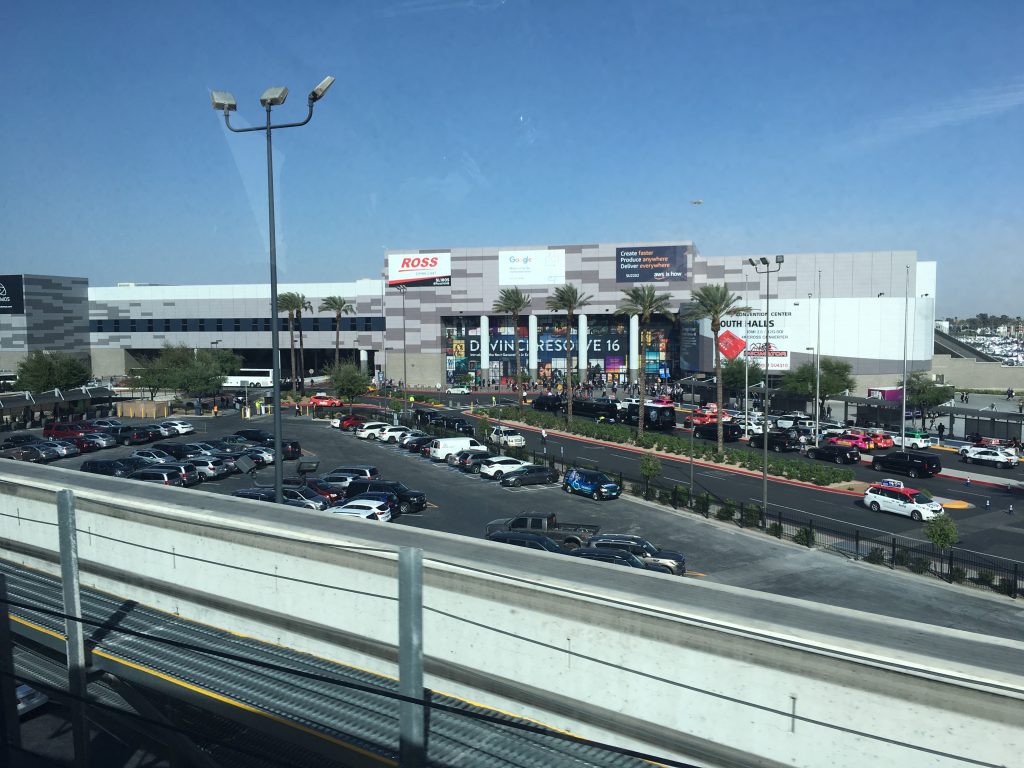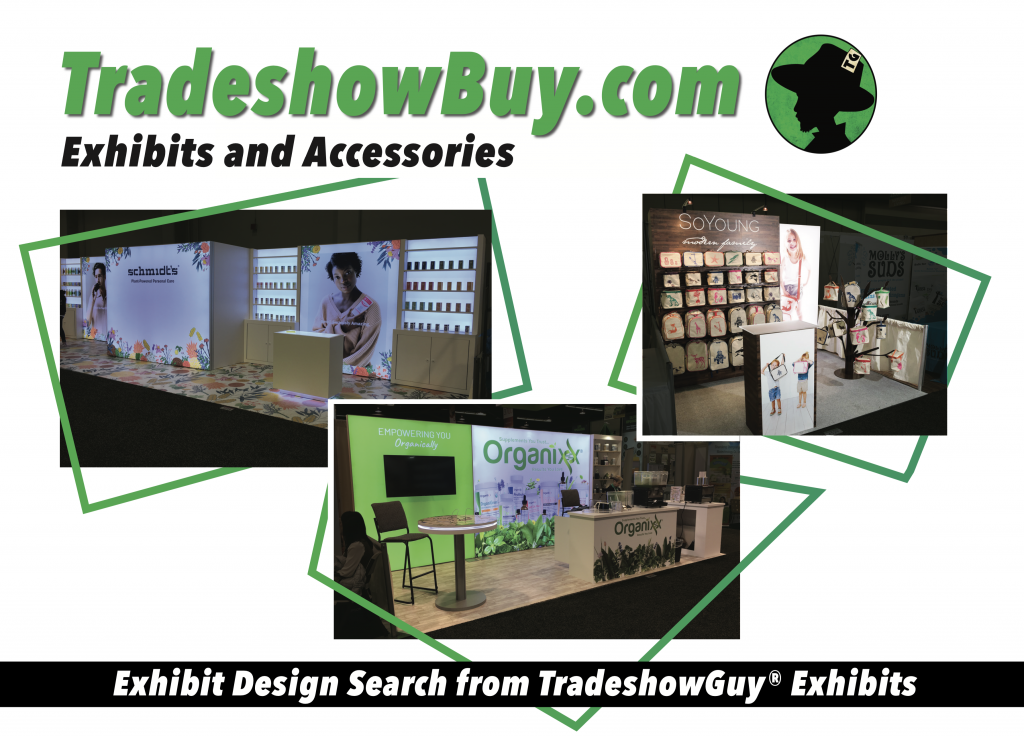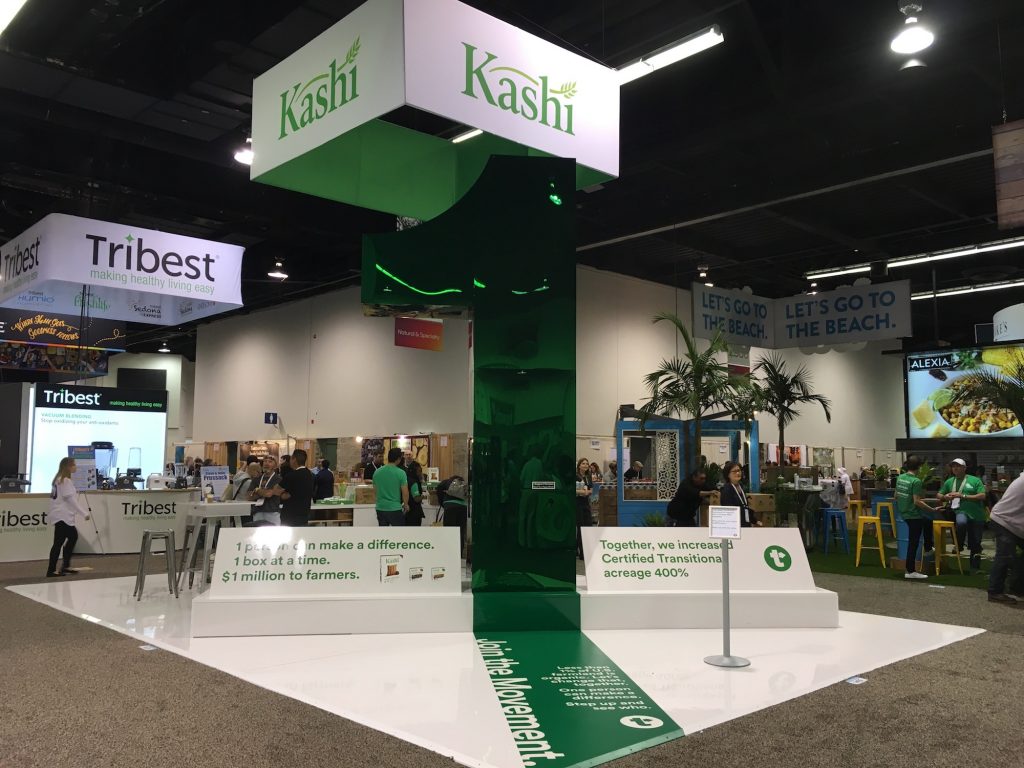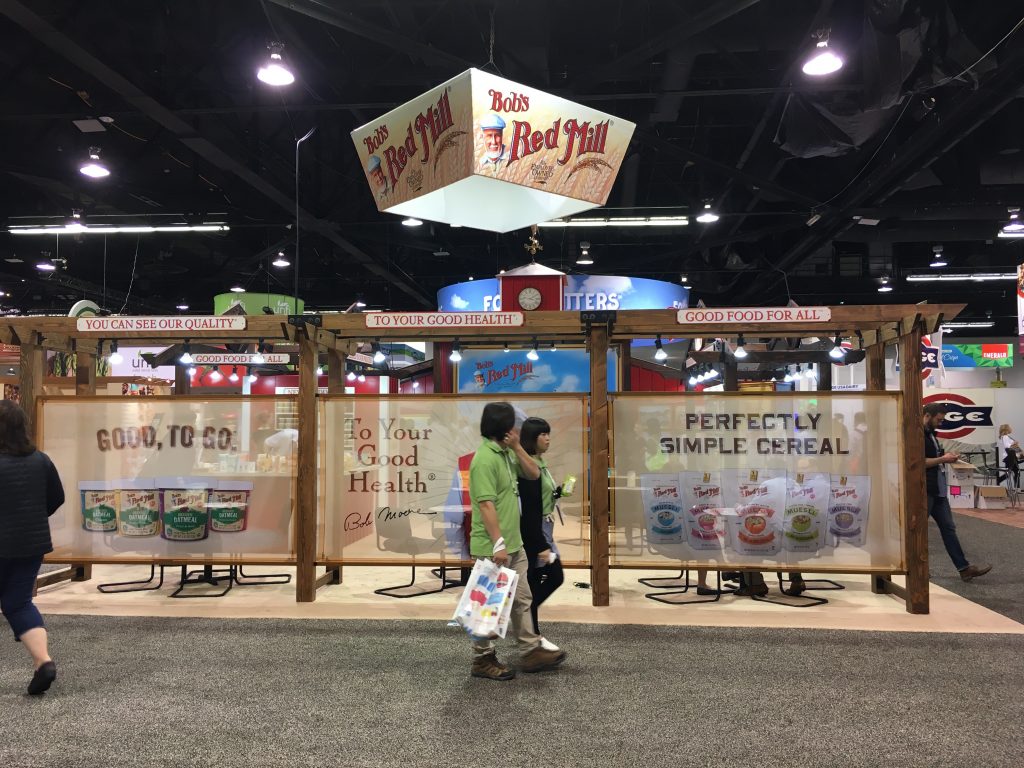7 Ways to Stand Out From the Tradeshow Crowd: Video
Standing out from the rest of your fellow exhibitors is often a combination of what you do, what your visitors can do, and what your booth looks like:

Standing out from the rest of your fellow exhibitors is often a combination of what you do, what your visitors can do, and what your booth looks like:

A quick scan of my Linked-In feed seems to confirm it: shows are returning to a lot of areas in the country. This morning I saw the news that Nevada Governor Steve Sisolak said that Nevada would be “100% open” on June 1st. This is definitely good news for shows in Las Vegas. I also saw a story last week, speaking of Las Vegas, that Tesla’s Boring Company had completed the mile loop under the Las Vegas Convention Center. Not really related to Vegas opening up, but cool nonetheless.
The Las Vegas Convention Centered recently showed off their nearly $1B expansion with the debut of the new West Hall, touted as a 1.4 million-square-foot West Hall expansion.

Trade Show Executive published an article last month detailing the return of tradeshows to Orlando, Dallas, and Atlanta, which has also been shared extensively on Linked In.
So yes, no doubt shows are slowly coming back. And I think the key word is slowly. You might add “randomly” as well to that description since many states are still experiencing increasing COVID cases (hello, Michigan!), which means some areas will open sooner than others. And yes, politics plays a part. Pandemic fatigue also is a big part.
My big question, though, boils down to how exhibitors and attendees will balance their desire to get back to the show with their desire to believe they’re safe when they do. That may change in the next few months as more and more people are vaccinated and the country edges closer to herd immunity, but of course there are always flies in the ointment, like virus variants, refusal among many people to wear a mask in certain situations, and so on.
Bottom line: shows will return, but it’ll be months or at least another year before the whole country can say that we’re getting close to normal.
Not every custom tradeshow exhibit project needs an RFP (Request For Proposal). But there are times when it’s an appropriate way to communicate what you need to a handful of carefully selected exhibit design and fabrication firms. Here’s a brief look at a number of things you should consider including in the RFP:

Thanks for joining me for my mini-rant!
I have always liked technology, because it’s purpose (I presume) is to make things easier. And mostly, that works.
So let me share a short story about a situation that has gotten under my skin. Due to, you know, technology. I can tell this story because it’s about a former client (no names, please – that’s not the point) and the story isn’t about the client. It’s about what happened when they got sold to a big international corporation, and that big international corporation instituted a new online system to make sure that invoices were paid promptly.
So, get it? The system was put into place to make the invoice-processing happen with less friction.
Here’s the old way we used to deal with invoices:
Works, right? Pretty simple. Straightforward. Five steps.
Bring on the new system!

The same thing happens. The account number has a last incorrect digit. The bank manually accepts the payment but warns that they can’t continue to do so.
I keep trying to work with the big international corporation and the independent payment online system that processes invoices. No matter who responds (which is rare) the big international company says it’s not their problem and that the processing company is the only one that can change it. The processing company says I should check with the big international company.
Stalemate.
Like I said, no longer a client. No longer dealing with the online payment system (fingers crossed). And no names necessary. I just wanted to illustrate what happens when a new technology tries to simplify things. Unintended consequences.
Yeah, I realize that this is an isolated instance and that other company’s experience may be completely different and things may work swimmingly for others.
Mini-rant over. I love my clients regardless!
It’s something I’ve been pondering for several months: making some modest changes to the frequency of TradeshowGuy Monday Morning Coffee. That time has finally arrived, and on this week’s episode I go into what that means.
This week’s ONE GOOD THING: The changing of the seasons.
Sure, you can mess up in a lot of ways with your tradeshow marketing. There are so many moving parts to the process. But follow these seven ways and you’ll really come away with a bad experience.
What happens when you, as a company, take a stand on an issue important to you on the tradeshow floor?
As with pretty much everything, the answer is: it depends.
I don’t see it all the time, but there are a few examples where supporting a cause is a big part of a company’s tradeshow exhibit. A part of their public-facing stance.
The first one that came to mind was a recent update to an exhibit we did for Dave’s Killer Bread. Dave Dahl, the famous Dave of the namesake brand, had a, shall we say, interesting history. As a result, in 2019’s updating of the exhibit for Natural Products Expo West in Anaheim, DKB focused a large part of their messaging on an issue important to them: making sure felons have a second chance. Their main counter and backdrop behind it were graced with statistics and images offering their take on the issue.
Another recent project seen at Expo West was Kashi’s spare booth warning of the lack of organic farmland in the U.S. There was no product to taste or see, just a simple 20×20 exhibit that displayed their concerns.

Another client, Bob’s Red Mill, made a change to their overhead banner touting that the company was an employee-owned company.

Once you start looking, it’s not hard to see the causes that companies support in their tradeshow booths. World’s largest B Corp. Zero waste to landfill. 100% organic. Save the Bees. The free-from market. And on and on.
Sure, you could say that especially in the natural products world, showing off your bona fides is just good marketing. And that’s true. But many companies go beyond that and plainly support causes as part of their tradeshow exhibit that a few years ago would be rare.
It’ll be interesting to see how this continues to unfold, and if it’s as obvious in other industries.
One of the ongoing challenges I find with exhibitors is working with show services. There seems to be some sort of mystery about what they do and don’t do, how much they charge, how to save money on it, and much more. I caught up with Jeff Quade, EVP of Exhibitions at GES to talk about all of these topics and more. We started with the news that shows are moving back into Las Vegas.
Find GES here.
This week’s ONE GOOD THING: Mr. Mercedes, the TV series based on the Stephen King book.
Sure it’s a gas to post lots of stuff online during a tradeshow. But are you missing some opportunities about the kinds of posts you send out? Here’s a short video showing a round ten types of posts that you might want to include at your next tradeshow:

Nothing like having everything in one spot, right? With these stands doing yeoman’s work in your booth space, you’ll find a little extra space for other things, like more visitors?
3-in-1 and 4-in-1 stands offer choices of tablet (iPad or Surface) holders, hand sanitizer, and literature holders in one compact, convenient stand. And of course, they can be fully branded, powder-coated, with anti-theft locks, and wire/cord management that gives it a clean look.
Take a gander:
Contact us for more information. Go to our full Exhibit Design Search at TradeshowBuy.com.